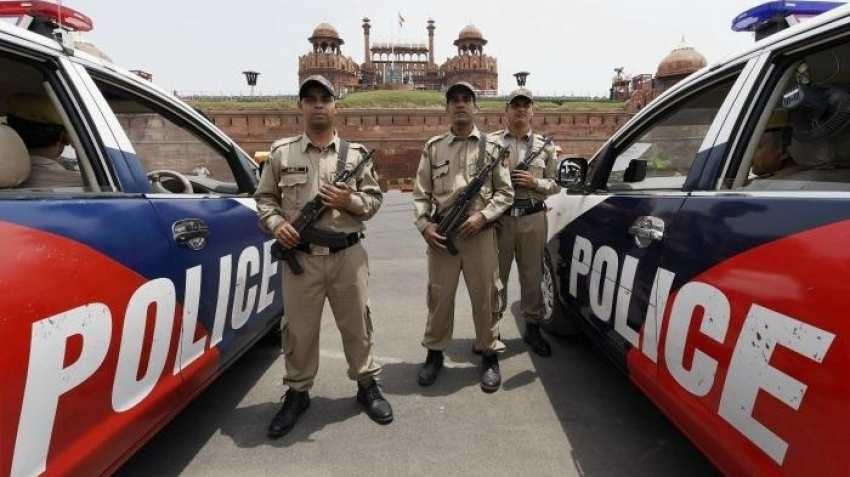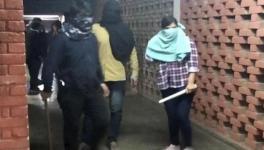Delhi Police Chief Given Power to Detain Anyone Under NSA

New Delhi: The Delhi Police commissioner has been delegated emergency powers to detain anyone under the draconian National Security Act (NSA) for three months – January 19 to April 18, 2020.
The order by Lieutenant Governor Anil Baijal is dated January 10, and comes in the backdrop of a series of ongoing protests against the controversial Citizenship (Amendment) Act, 2019 or CAA, the National Population Register (NPR) and the proposed National Register of Indian Citizens (NRIC).
However, the Delhi Police said this was a ‘routine order’ that is issued every quarter and had nothing to do with the current situation
As per the notification: "In exercise of the powers conferred by Sub Section (3) of Section 3, read with clause (e) of Section 2 of the National Security Act, 1980, the Lt. Governor of the National Capital Territory of Delhi is pleased to direct that during the period 19/01/2020 to 18/04/2020 the Commissioner of Police, Delhi may also exercise the powers of detaining authority under Sub Section (2) of the section 3 of the aforesaid Act.”
After the issuance of the notification, an individual can be detained under NSA for a period of 12 months without any charge against him/her. The order can also be made by the District Magistrate or a Commissioner of Police under their respective jurisdictions, but the detention should be reported to the state government along with the grounds on which the order has been made.
No such order shall remain in force for more than 12 days unless approved by the state government. The NSA can also be invoked if a person assaults a policeman on duty.
The detainee cannot be informed about the charges against him or her for 10 days. The detention can only be challenged before an advisory board of the High Court, but the accused does not have the privilege to have a lawyer to represent him.
The detention can continue for months if authorities are satisfied that the individual is a threat to law and order of national security. The state government concerned is intimated that the individual has been put under preventive detention under the NSA.
The timing of the notification, however, has raised many eyebrows given its timing.
"We oppose this notification as, apparently, this has been notified to suppress the voice of dissent being raised that is getting momentum day by day against the enactment of the CAA. We will challenge against this notification because it is barbaric," Advocate Shahid Ali, a lawyer at Delhi High Court, told Newsclick.
He said through this notification, the condition of approval of detention order by the state government has been taken away.
Advocate Anas Tanwir Siddiqi, a Supreme Court lawyer, said the notification might be a routine one but the way it has been ‘popularised’ shows there is something more than what meets the eye.
However, he cautioned that there was no need for any panic. "The timing shows that it may have been done to create fear among the protesters in the light of upcoming Republic Day parade," he added.
GROUNDS TO SLAP NSA
Introduced and enacted on September 23, 1980 by the Indira Gandhi-led Congress government in the Centre, the NSA’s aim was to take a person in preventive custody on the following grounds:
(a) acting in any manner prejudicial to defence of India, the relations of India with foreign powers or the security of India.
(b) regulating continued presence of any foreigner in India with a view to making arrangements for his expulsions from India.
(c) preventing them from acting in any manner prejudicial to the security of the state or from acting in any manner prejudicial to the maintenance of public order or from acting in any manner prejudicial to the maintenance of supplies and services essential to the community it is necessary so to do.
WHAT MAKES THE LAW DRACONIAN
If a person is arrested under Criminal Procedure Code (Cr. P.C.), he or she has certain rights such as right to information regarding the reason for his arrest, his production before a magistrate within 24 hours and access to lawyers and right to bail.
But the NSA is known as a law where in there is “no vakeel, no appeal, no daleel” (no lawyer, no appeal, no argument). Those who are detained under the legislation don't have these rights.
When the police, say experts, fail to file a case under the strictures of constitutional and statutory law, they book people under NSA.
They allege that there is a pattern in using preventive detention -- to bypass a trial when witnesses are willing to testify, to prevent release on bail and to launch down a crackdown on repeat offenders and organisers of crimes.
"The police use NSA in difficult criminal cases as inefficiency makes its task difficult," said a retired police official in Delhi.
UP AMONG TOP 5 STATES
NSA cases do not figure in the data released by the National Crime Records Bureau (NCRB), which collects and analyses crime statistics, as no FIR is registered in these cases. Therefore, the exact figure of those sent behind bars under this Act is not known.
Successive governments have abused the NSA, and Uttar Pradesh figures among top five states in terms of the numbers arrested under it, as per various media reports and estimates.
Get the latest reports & analysis with people's perspective on Protests, movements & deep analytical videos, discussions of the current affairs in your Telegram app. Subscribe to NewsClick's Telegram channel & get Real-Time updates on stories, as they get published on our website.
























